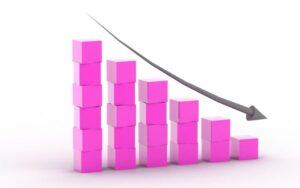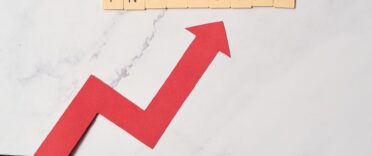
The surprise dip in both headline inflation and core inflation offers borrowers hope for future base rate cuts, especially after a tumultuous start to 2025 which saw the pound's value tumble as government borrowing costs rose.
James Smith, Research Director at the Resolution Foundation, said: “While inflation remains above the Bank of England’s 2 per cent target, the welcome fall in underlying inflationary pressures in December provides some respite from a run of recent data suggesting the UK is suffering from ‘stagflation’.”
Several experts predicted that inflation would continue to rise and that, coupled with the increase in government borrowing costs and a weakened pound, led to concerns about stagflation; a term used to describe slow economic growth coupled with high unemployment and high inflation.
The 2.5% rate of inflation means that prices across the board rose by around 2.5% in December 2024. While this is lower than expected, it's still above the Bank of England's target of 2%.
Why did the inflation rate drop to 2.5% in December?
Restaurants and hotels were responsible for the largest downward trend in the new inflation figure, while transport drove prices up the most on a month-to-month basis. The annual inflation rate for restaurants and hotels was 3.4% in December 2024 down from 4% in November. Hotels were the primary cause for the fall in inflation within this sector. Prices fell by 1.9% when looked at on a monthly basis, whereas last year they rose by 3.1% over the same period. On the other hand, restaurants saw prices rise by 0.2%.
While prices in the transport sector fell by 0.6% in the year to December 2024, when looked at on a monthly basis, they rose by 1% in December itself up from 0.6% at the same time last year. The ONS reports the rise in transport costs is due to the increase in prices of motor fuels and second-hand cars. For context, Petrol prices rose by 1.4p per litre between November and December 2024 while Diesel prices rose by 2p per litre in the same time period. The price of second-hand cars rose by 1% in December.
Other sectors which contributed to the fall in inflation in December include alcohol and tobacco, clothing and footwear, as well as recreation and culture. On the other hand, the communication sector and the household services sector contributed to pushing the inflation figure up.
What does falling inflation rate mean for the base rate?
The Monetary Policy Committee voted to keep rates at 4.75% during their meeting in December. Three members voted to reduce the base rate to 4.5% while six members voted to keep it the same. The decision was partly driven by the slightly higher-than-expected rise in inflation in October and November. Inflation rose from 1.7% in September to 2.6% in November ahead of the MPC base rate meeting in December. Geopolitical factors like ongoing tensions and trade policy uncertainty, particularly with regard to the incoming US administration, were also cited.
The bank's decision to hold rates in December came after two quarter-point base rate cuts in 2024; one during the August meeting and one during the November meeting.
Despite the geopolitical factors at play, the slight yet surprising dip in inflation has bolstered hopes for a February base rate cut. David Hollingworth, associate director at L&C Mortgages said: “The surprise dip in inflation is some positive news for borrowers who will have been unsettled by the recent unrest in the gilt markets and what it may mean for mortgage rates. Although there may still be increases to come in the months ahead, the fall in inflation will firm up the hopes that the Monetary Policy Committee will cut the base rate in February."
Not all experts see the dip in inflation as a game changer, with some pointing to expected price rises in the coming months as a result of policies announced during the Autumn Budget. Several companies have hinted they plan to increase the prices of their products as a result of their new National Insurance obligations.
Stuart Morrison, Research Manager at the British Chambers of Commerce, said: “Today’s slight dip in the inflation rate is welcome but it’s not a game-changer. Underlying price pressures within the economy are clear following the Budget. The path ahead on interest rates this year is likely to remain slow and cautious."
That said, other experts believe inflation and government policy is less of a threat to the economy than a strict monetary policy that sees interest rates remain high. Dr George Dibb, associate director for economic policy at IPPR, said: "High interest rates are stifling growth, as we’ve repeatedly warned, and this slowdown is driven by tight monetary policy—not the new government’s policies. To boost growth and economic prosperity we need interest rates to come down.”
The next Monetary Policy Committee meeting is due to take place on February 6, 2025.
How will the dip in inflation affect mortgage and savings rates?
The dip in inflation is good news for borrowers though not great news for savers. The slight dip in inflation means that the Monetary Policy Committee could possibly vote to cut rates again in February. A quarter-point cut would see rates fall to 4.5% from the current rate of 4.75%
If the base rate falls, borrowers on tracker mortgages will see lower mortgage rates, while those looking to fix in the near future could see better fixed-rate deals. If you're looking for a mortgage deal, our mortage best buy tables are a great resource which we update frequently.
That said, savers using variable-rate savings accounts could see their savings rate dip. Those looking for fixed-rate products may wish to lock in now before rates fall any further. Rates were due to fall gradually this year despite the dip in inflation, so it's a good idea to take a look at the best savings accounts on the market regardless.




